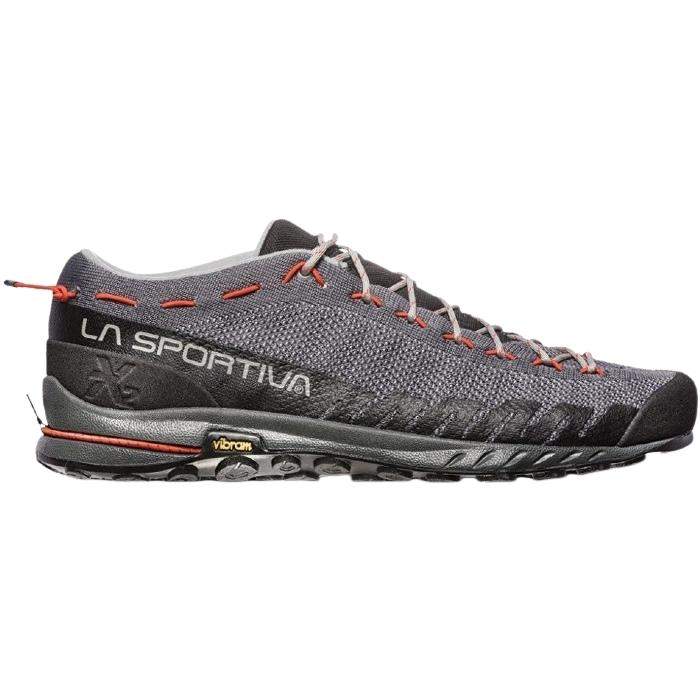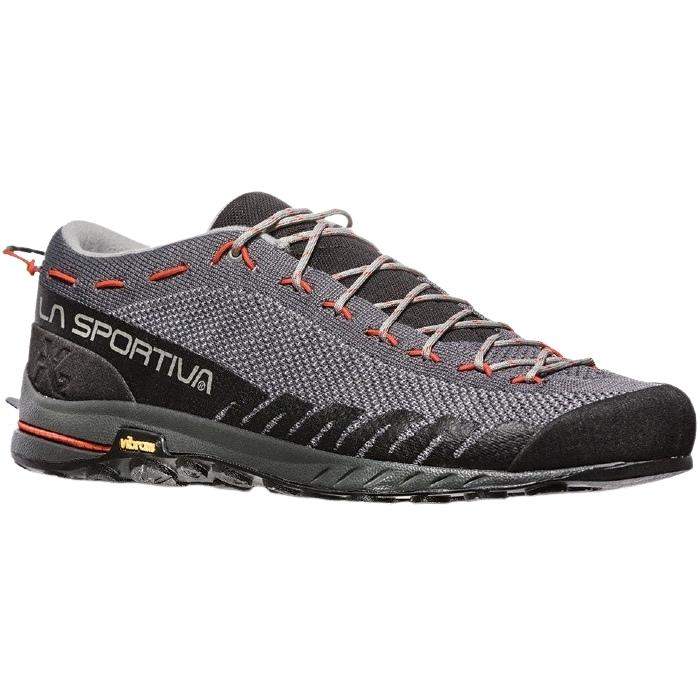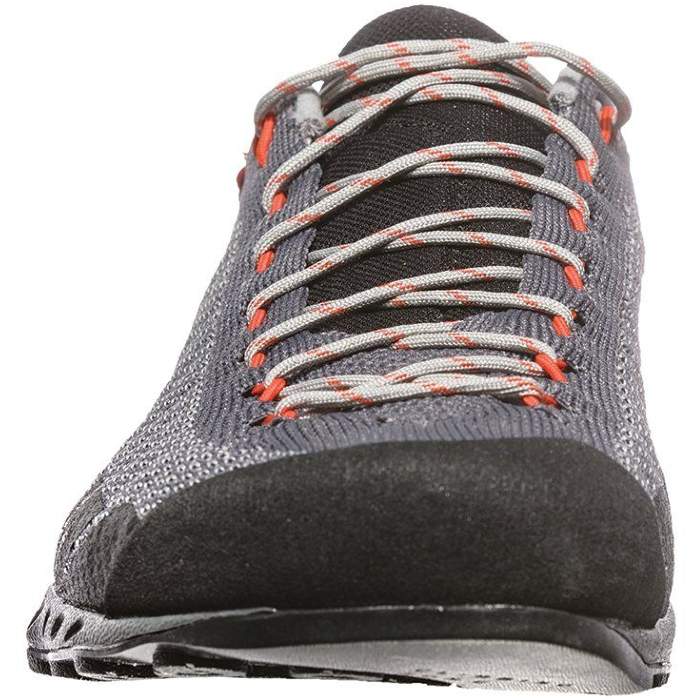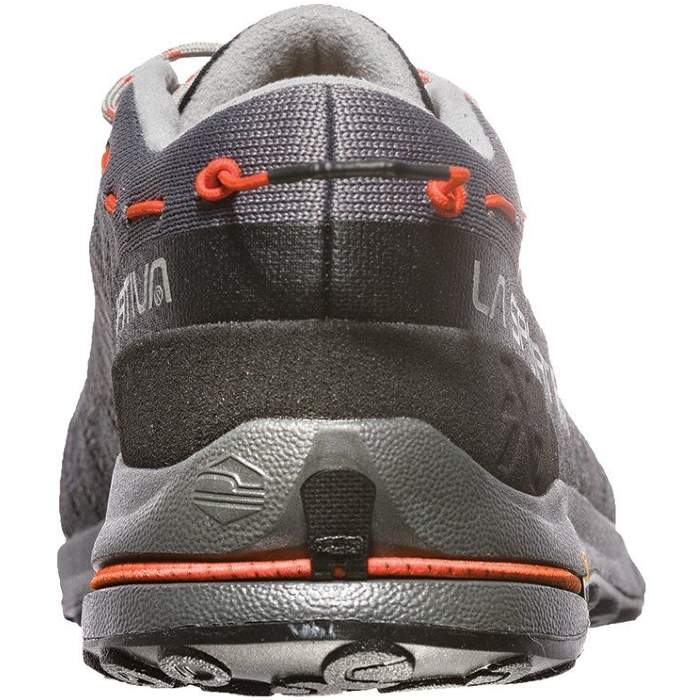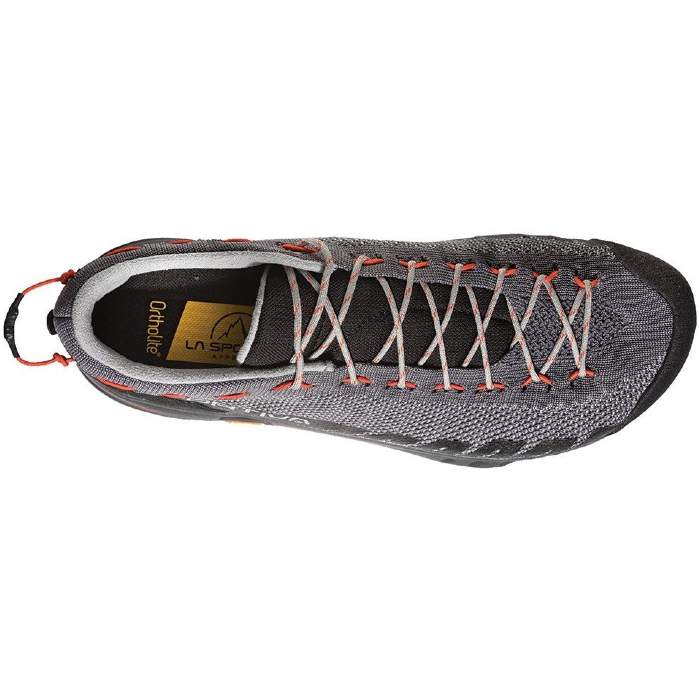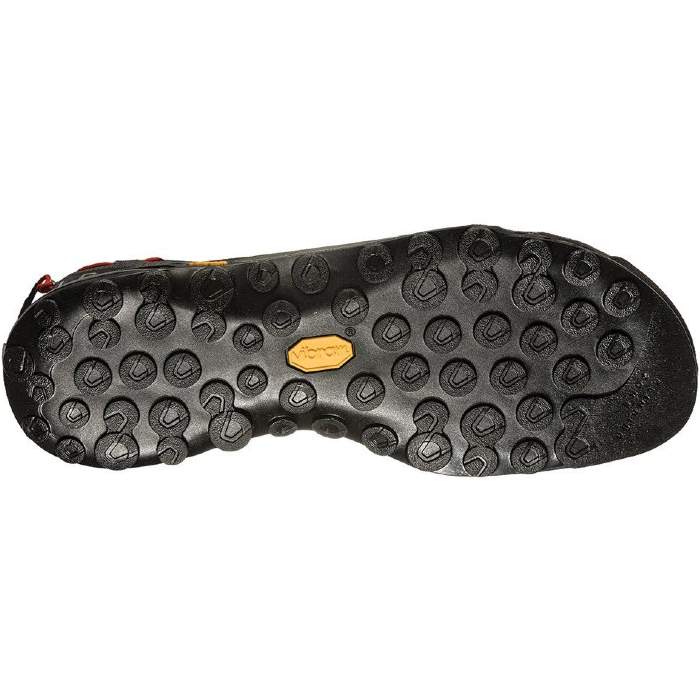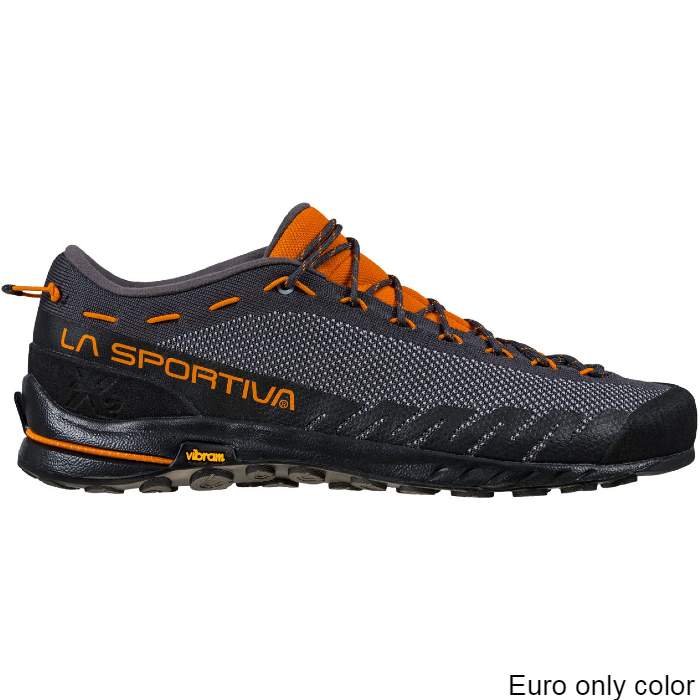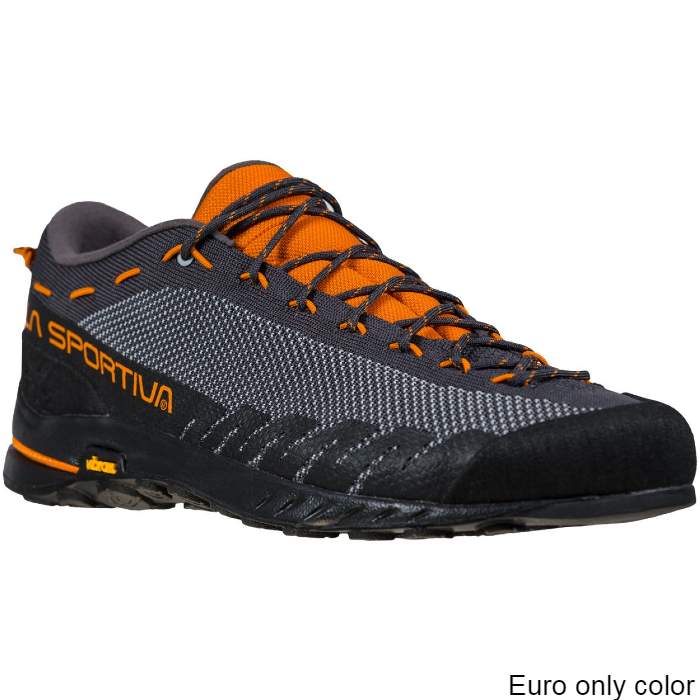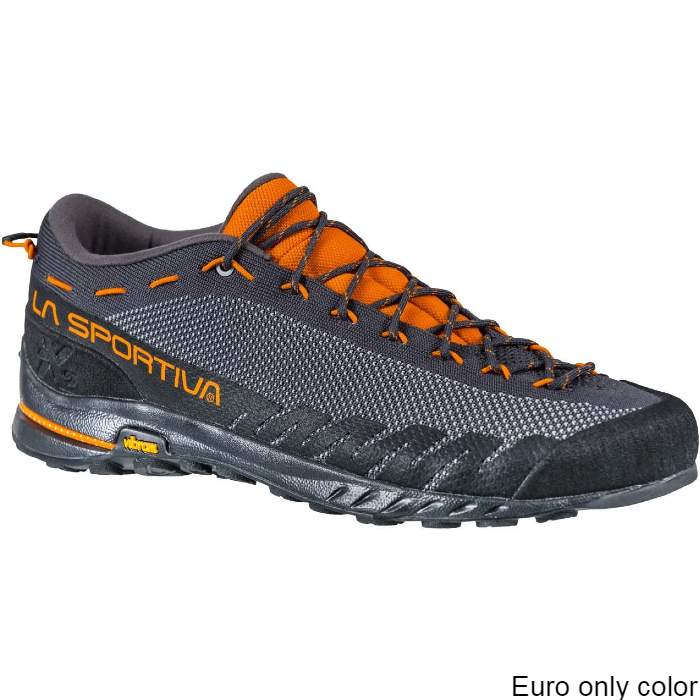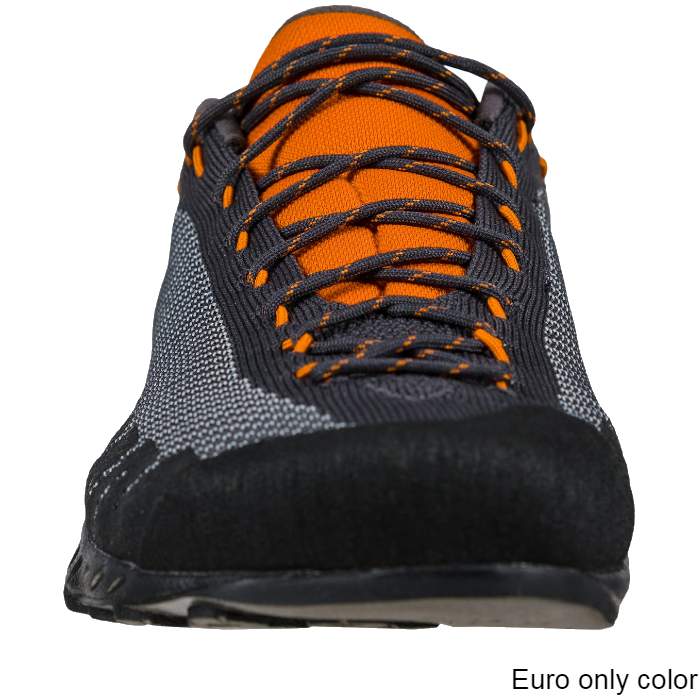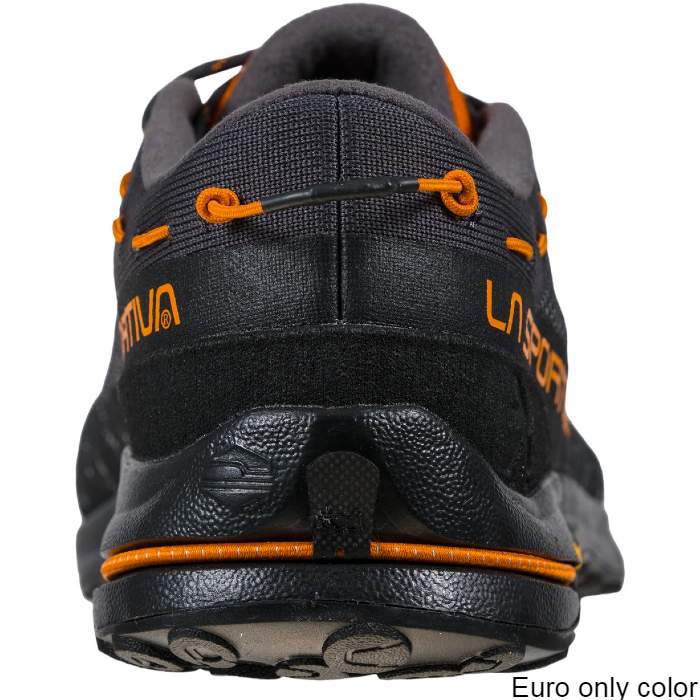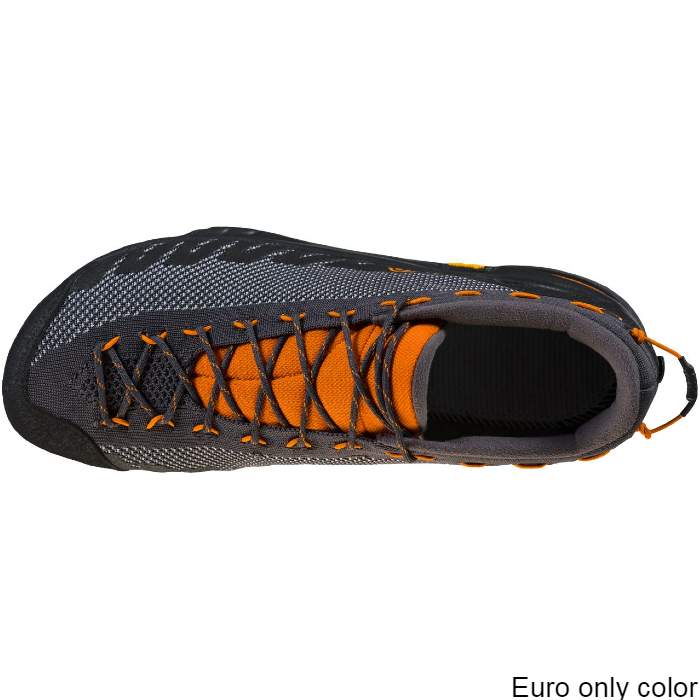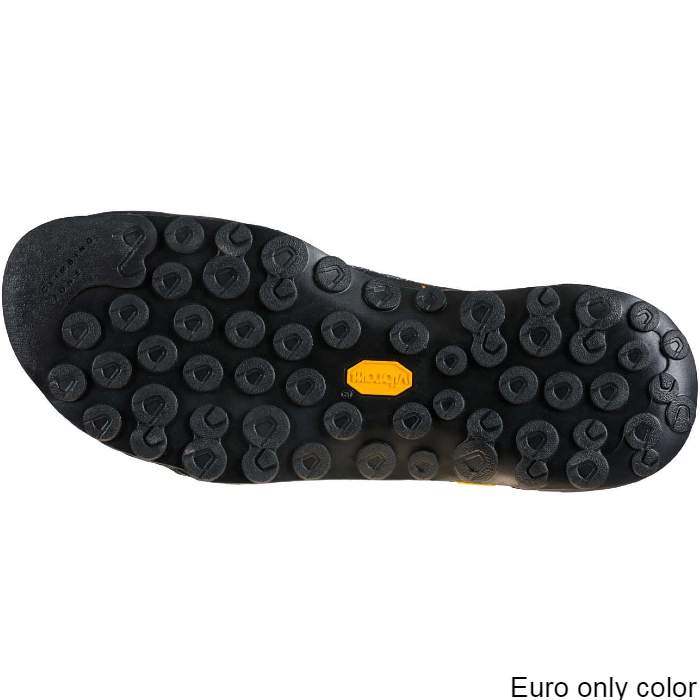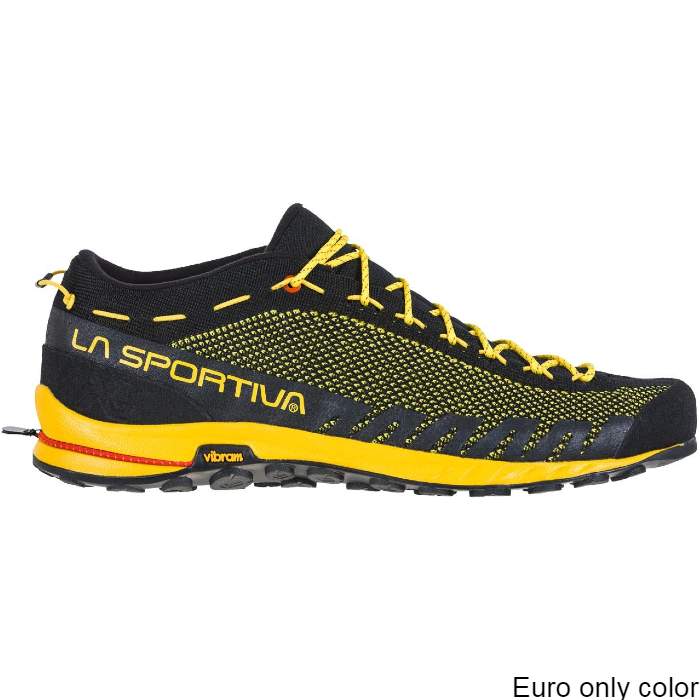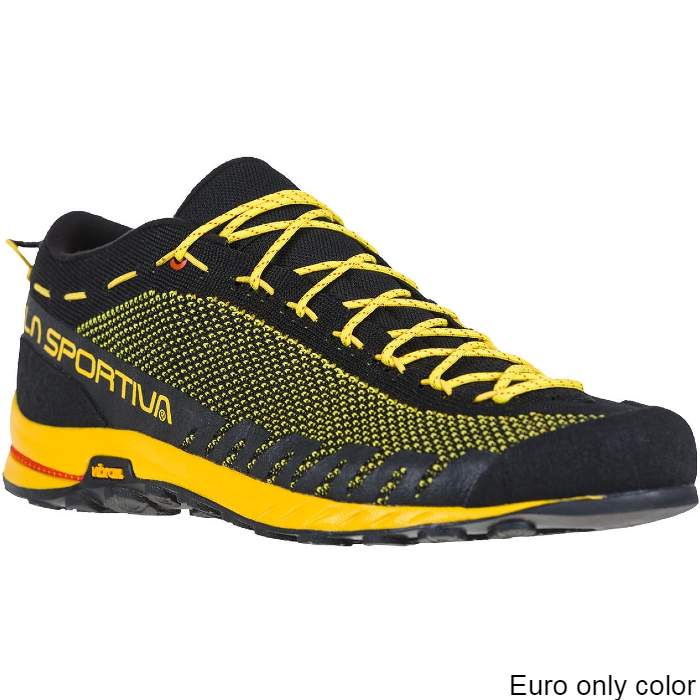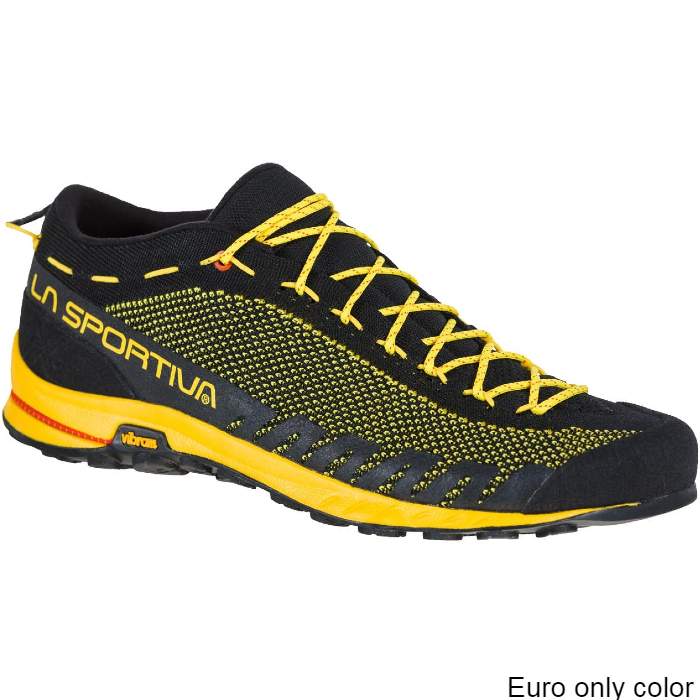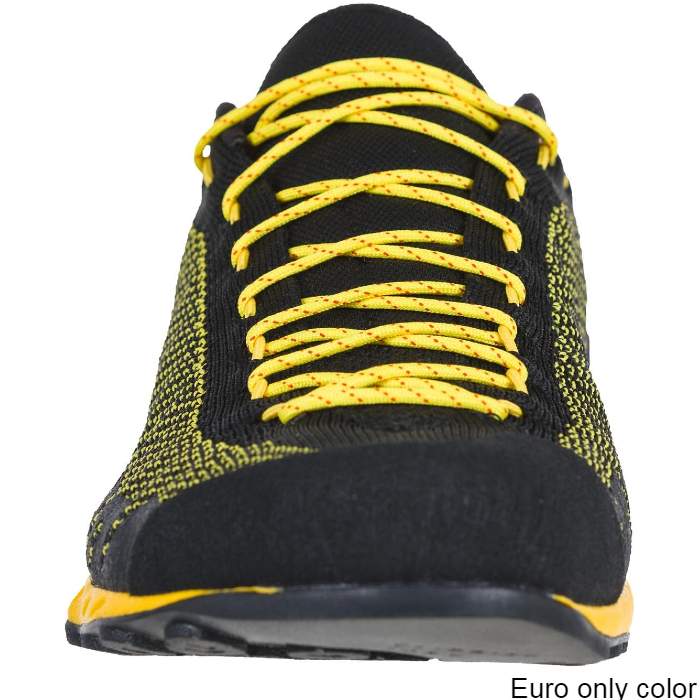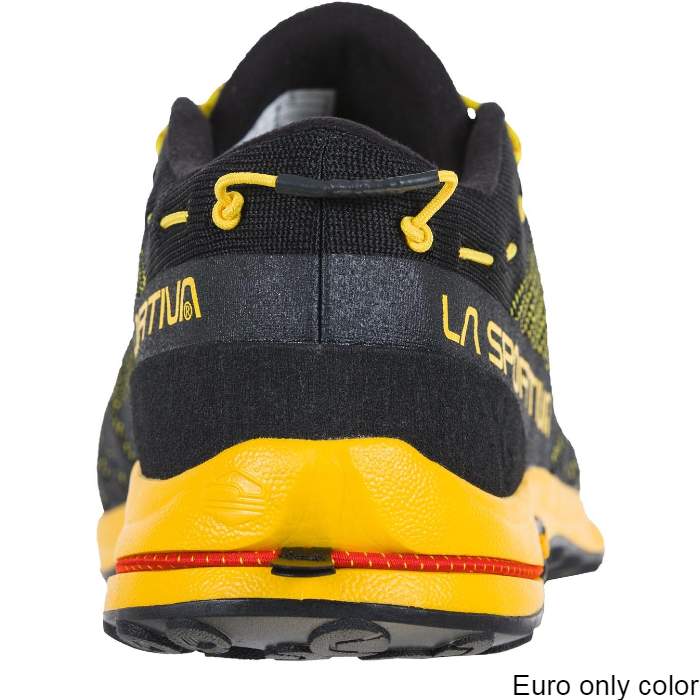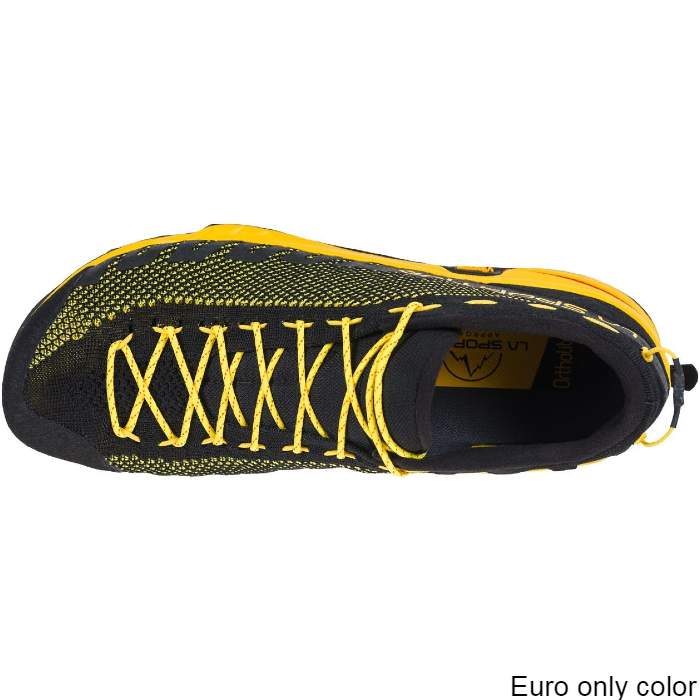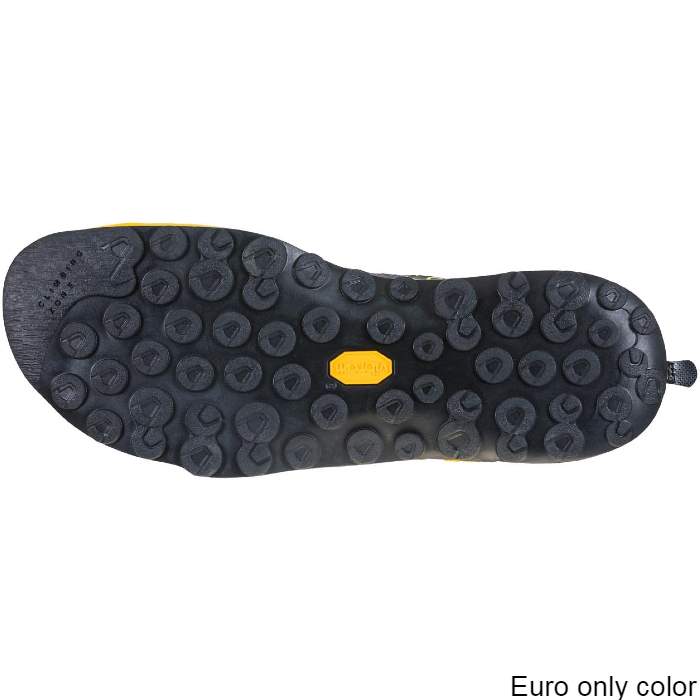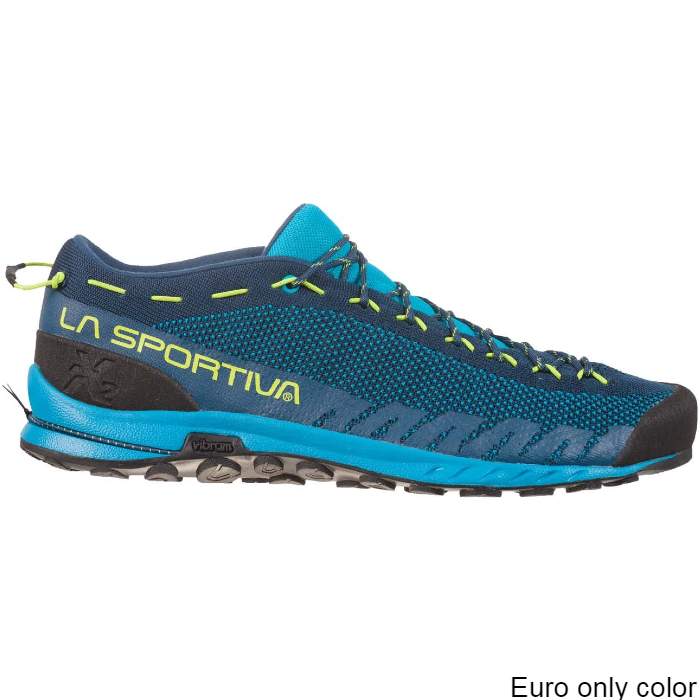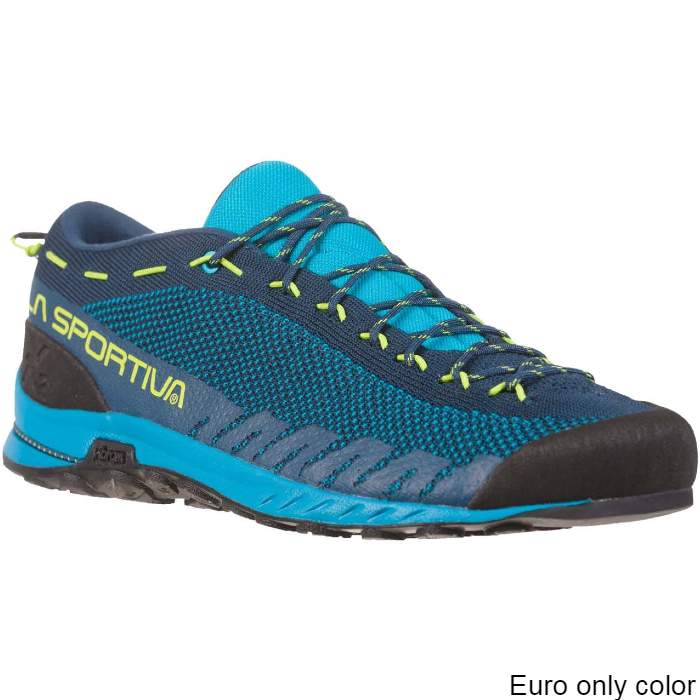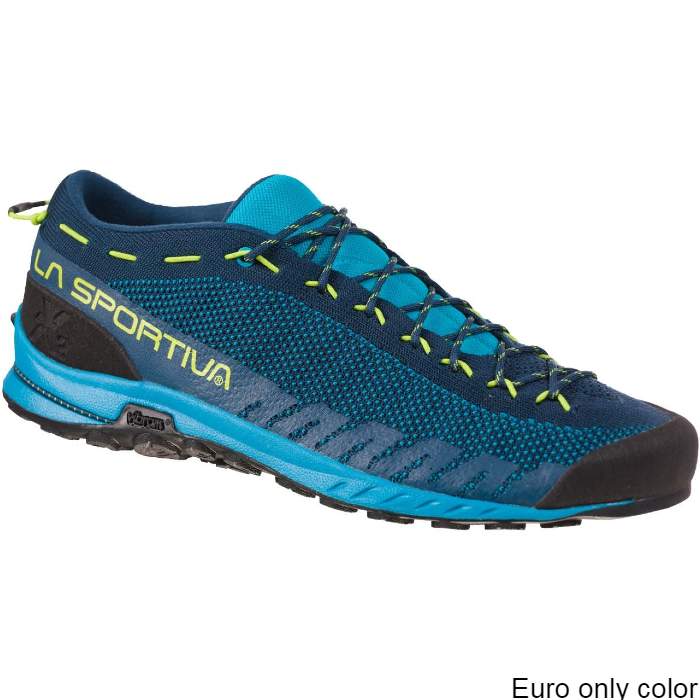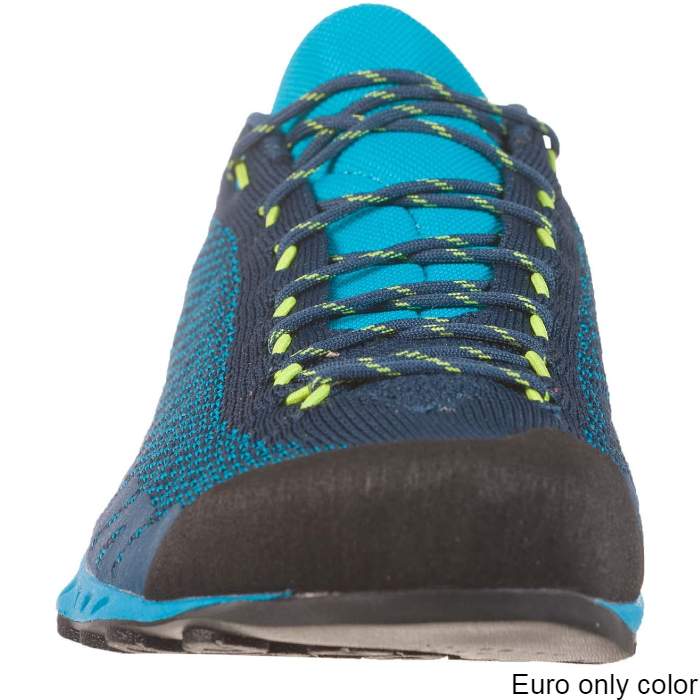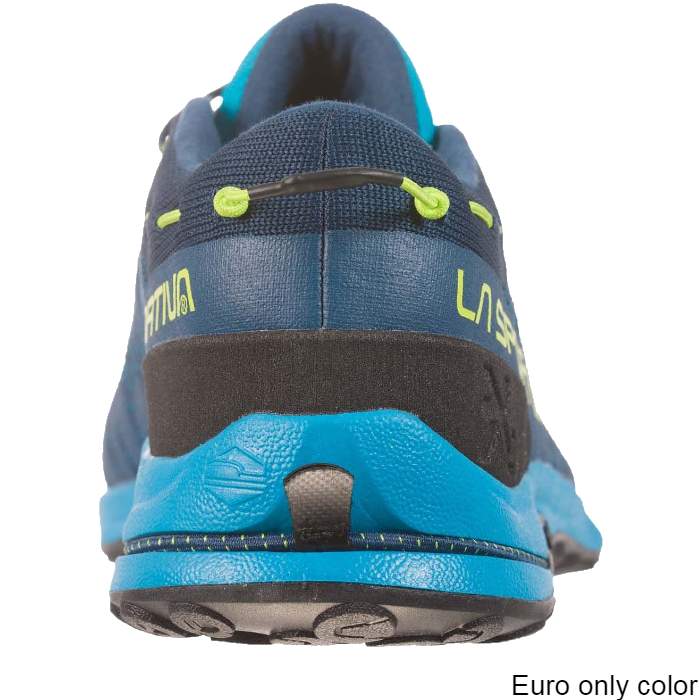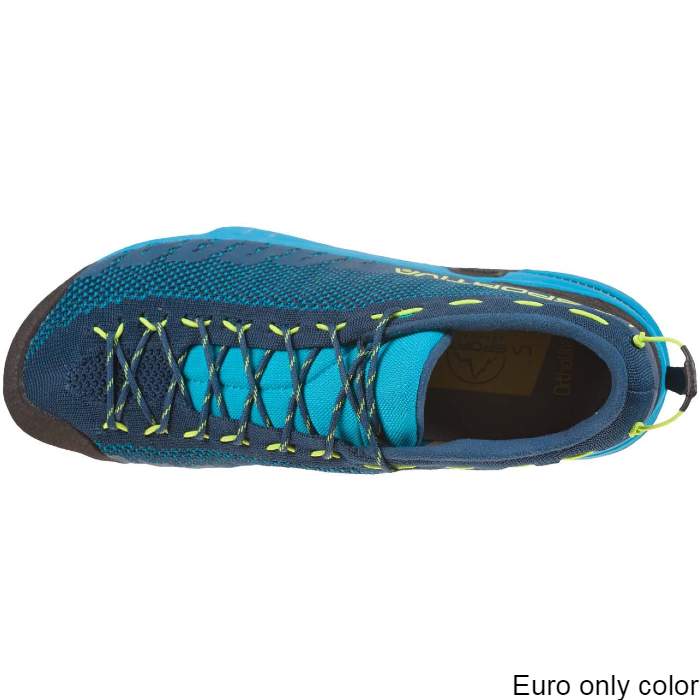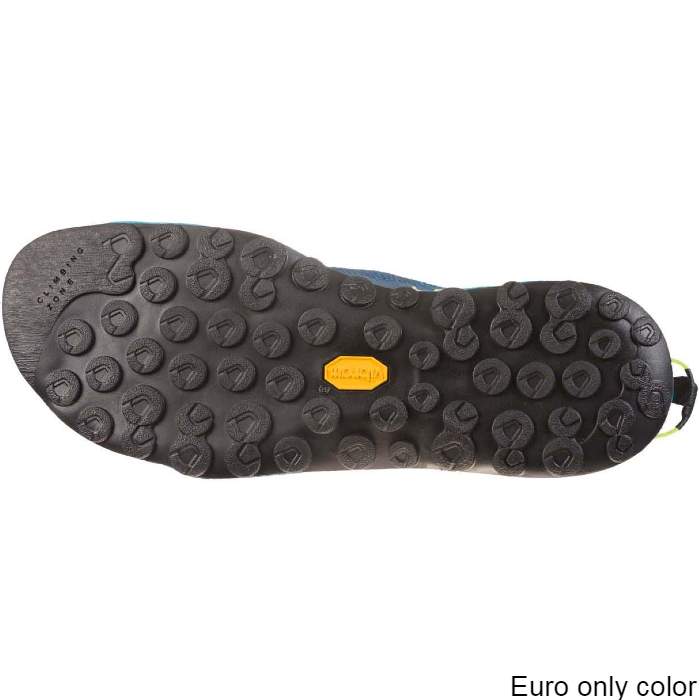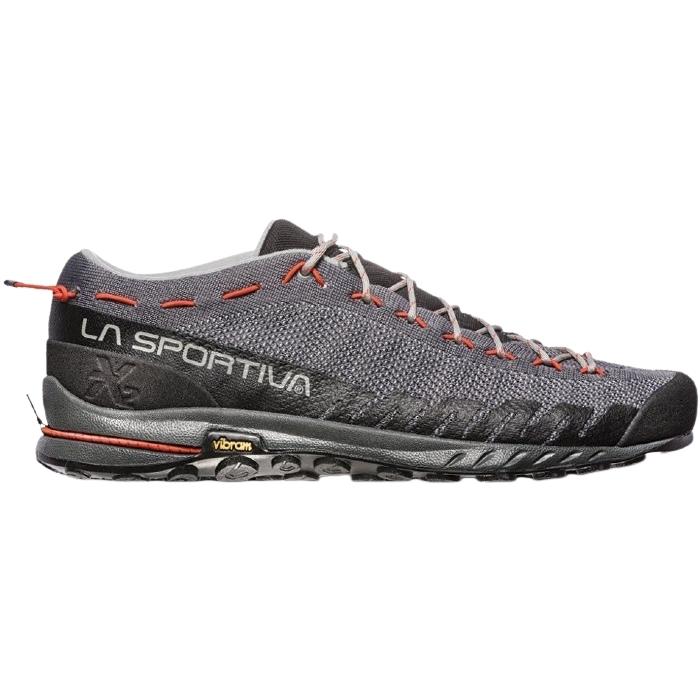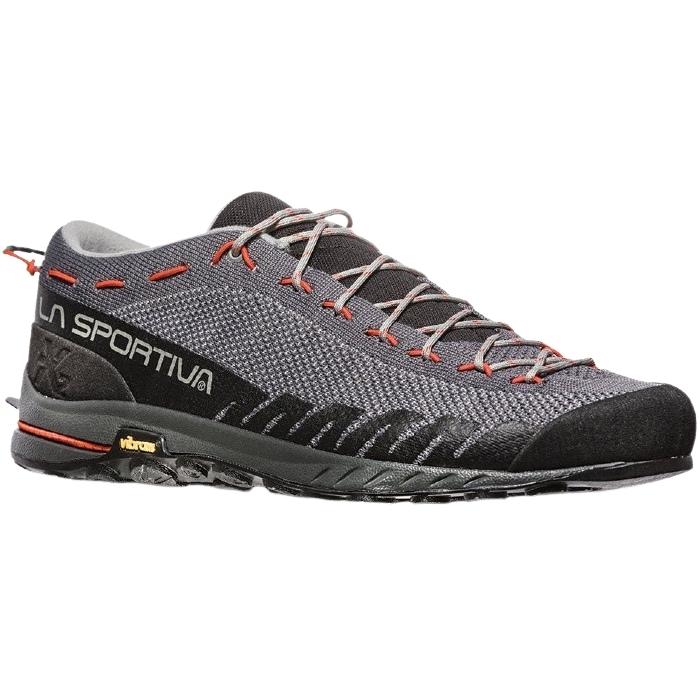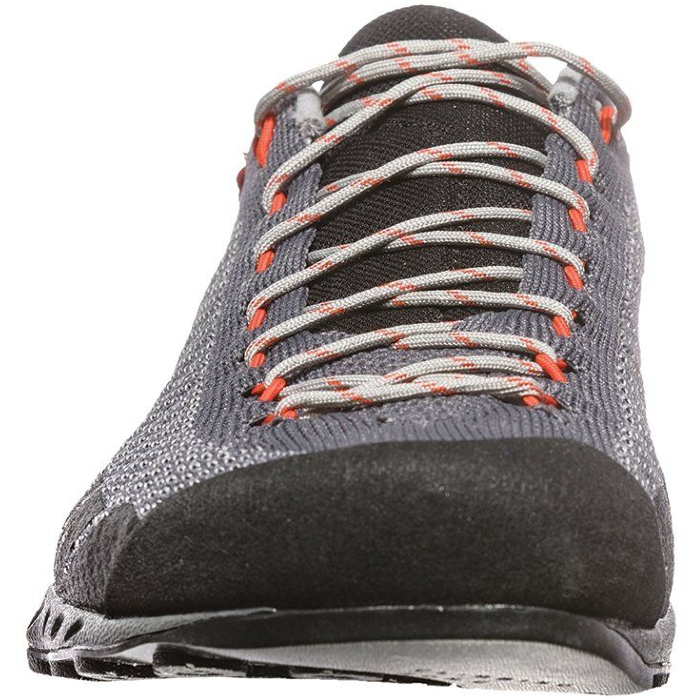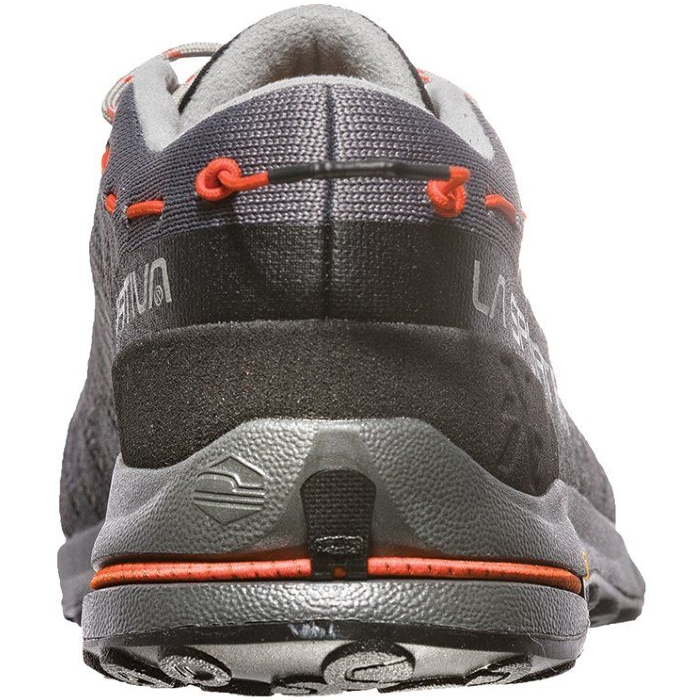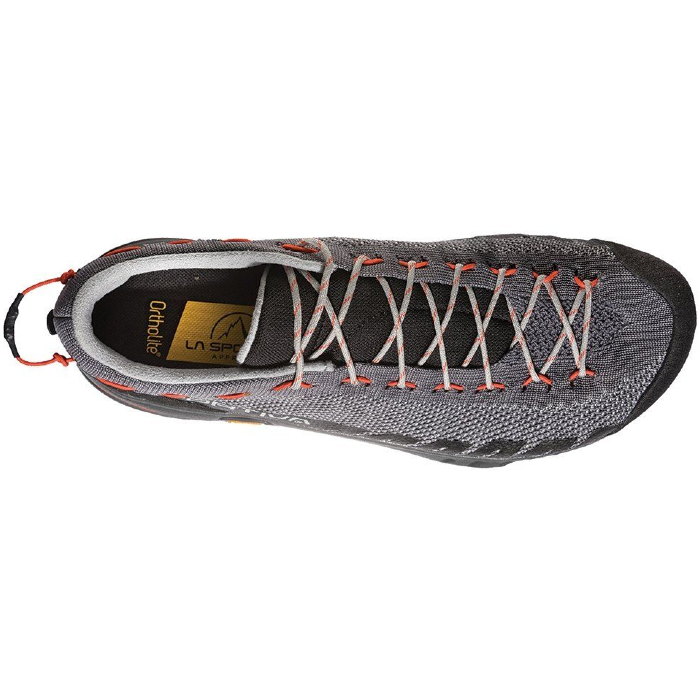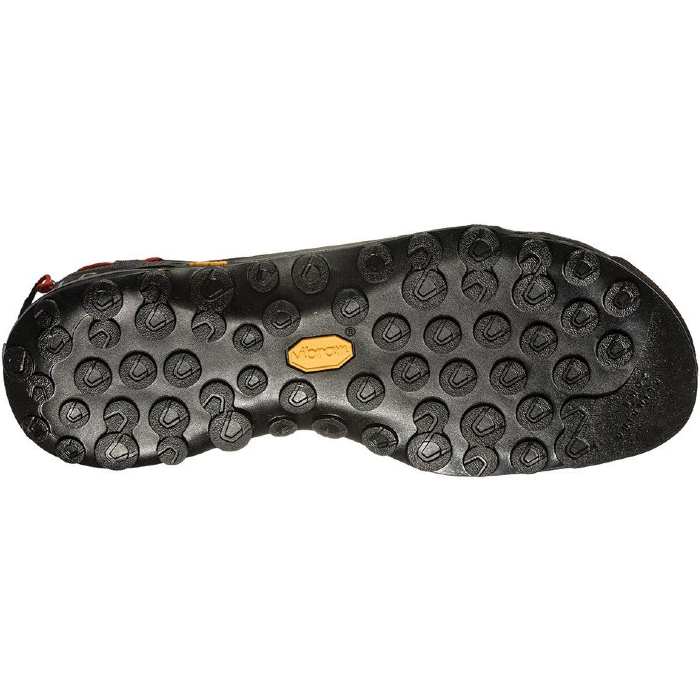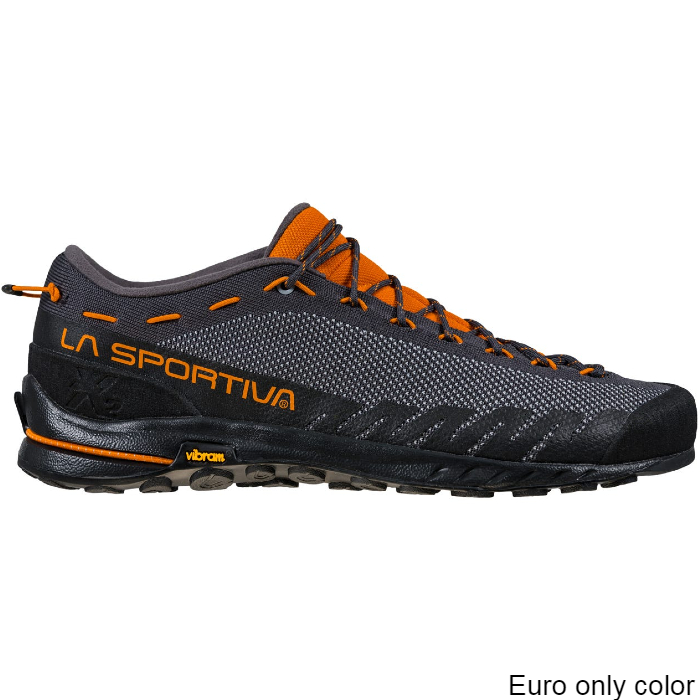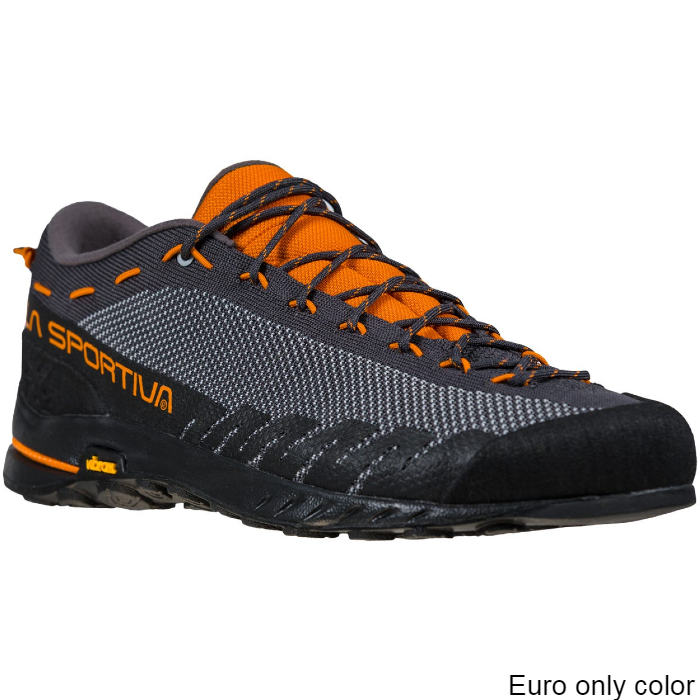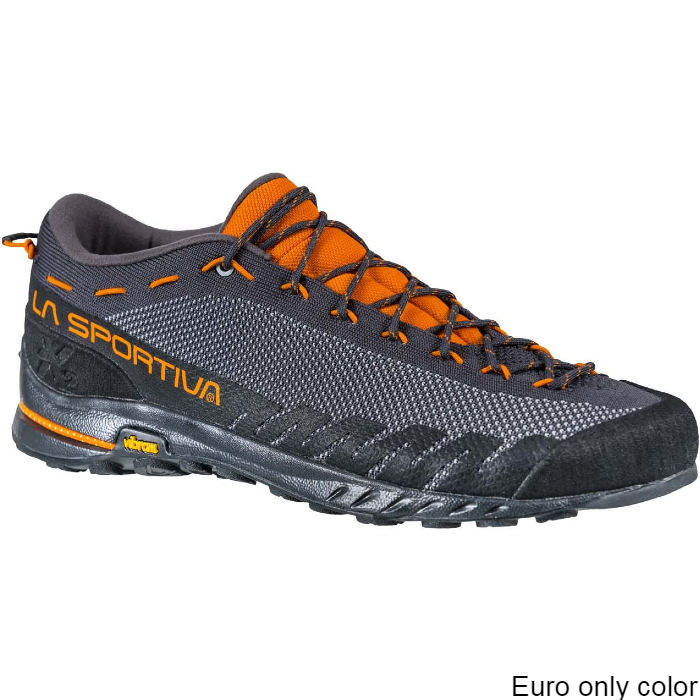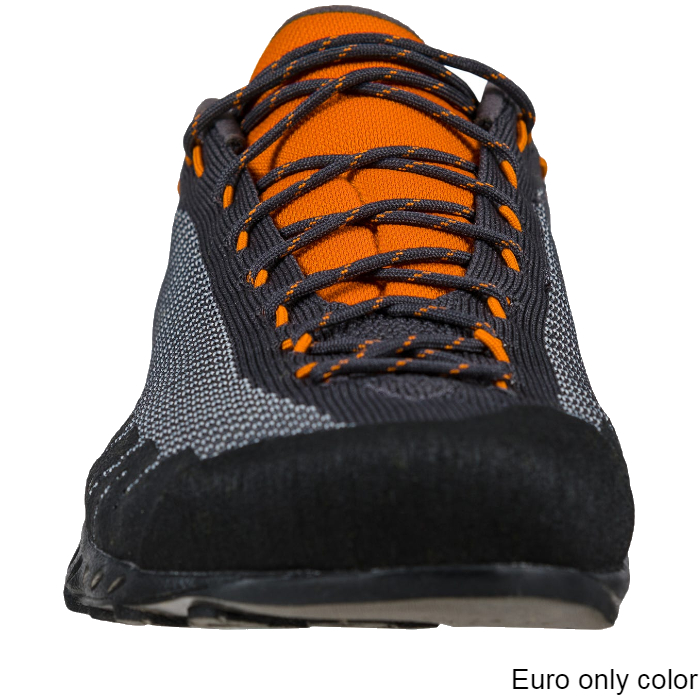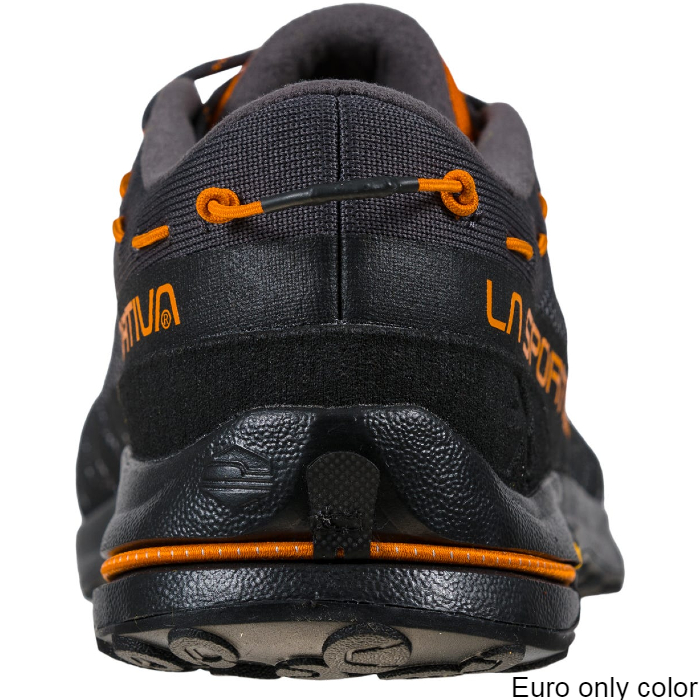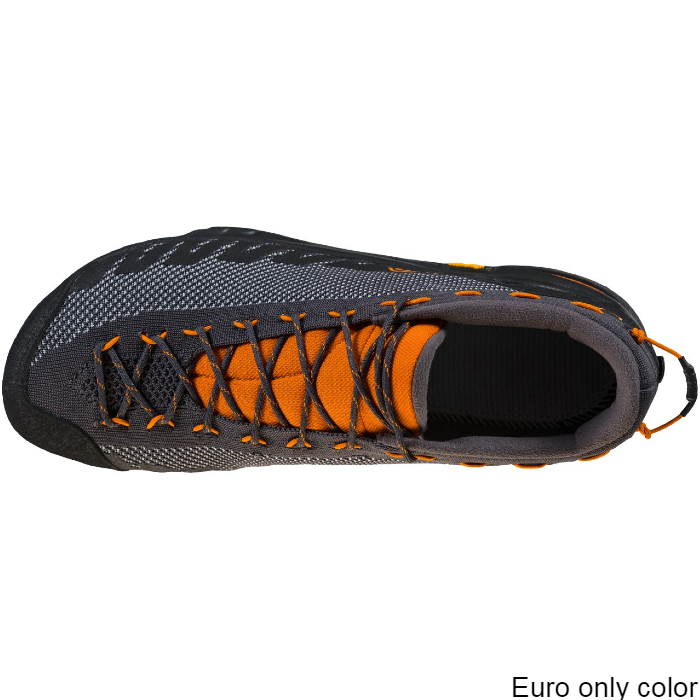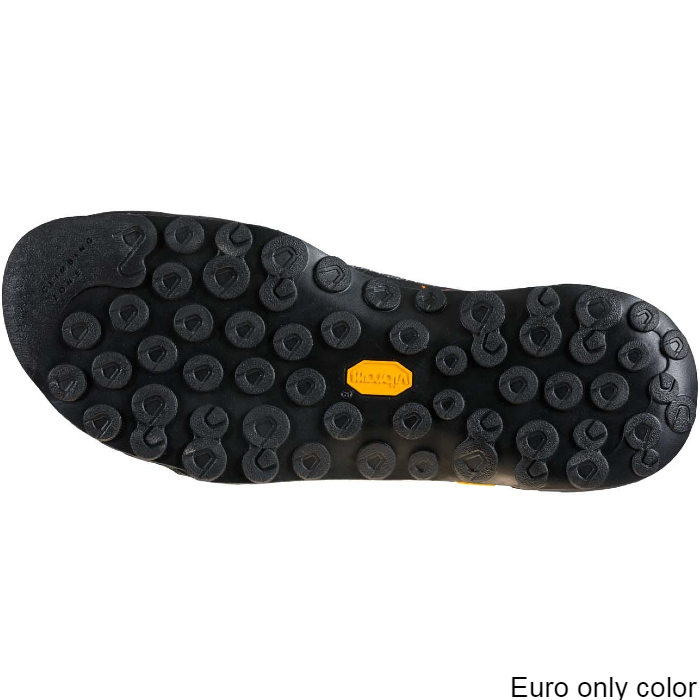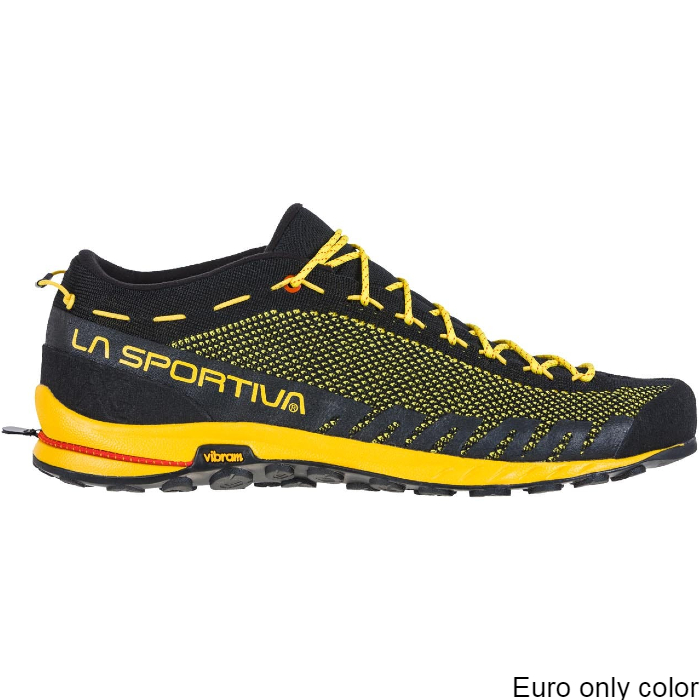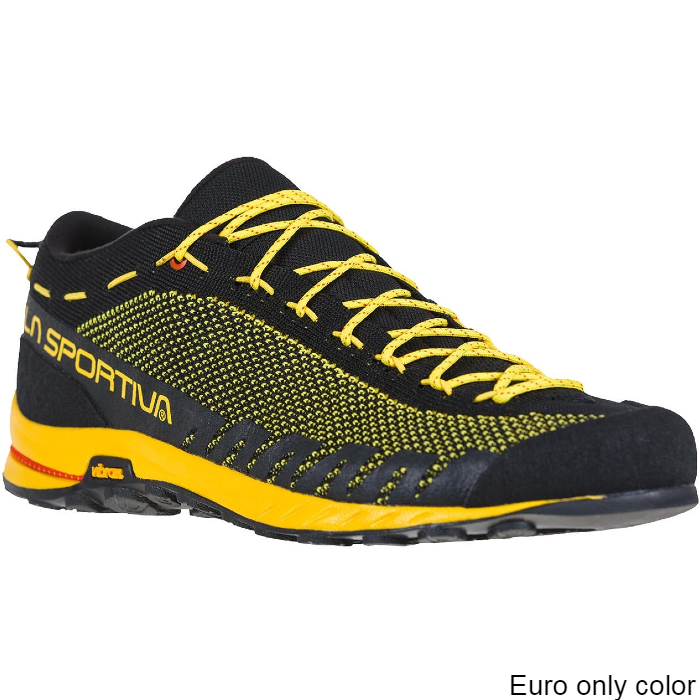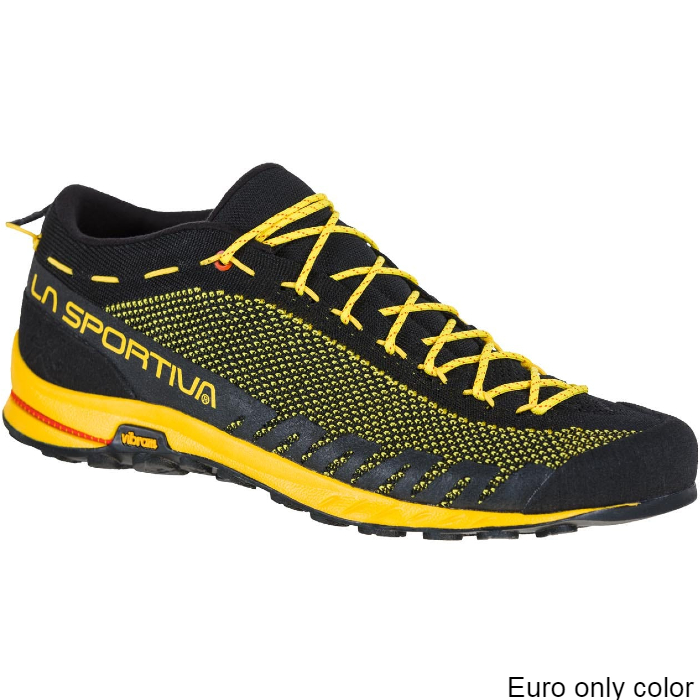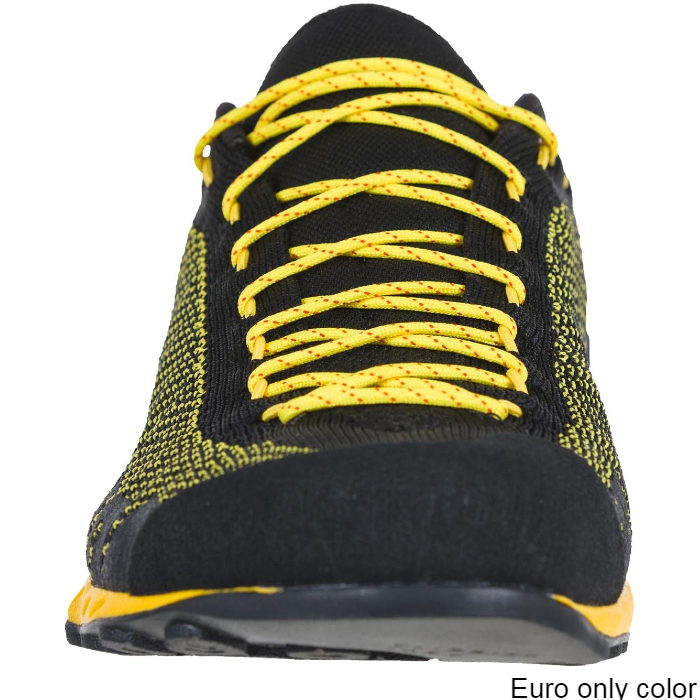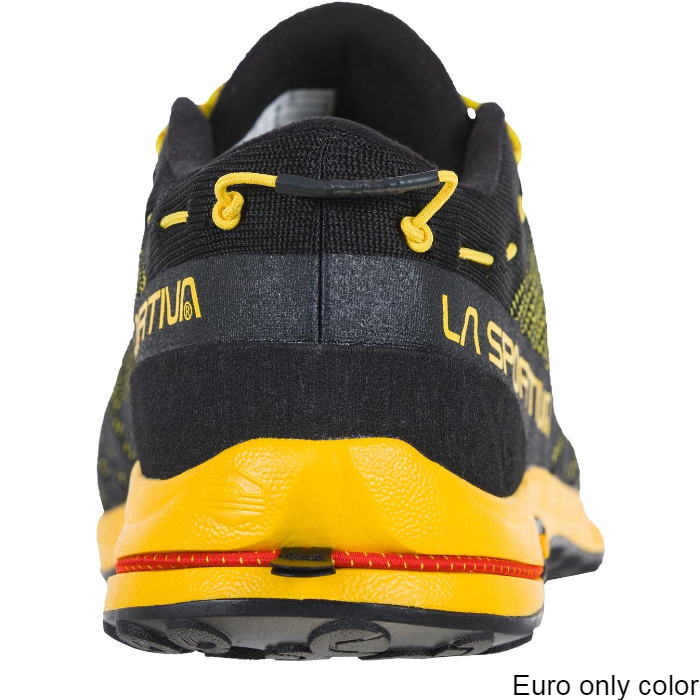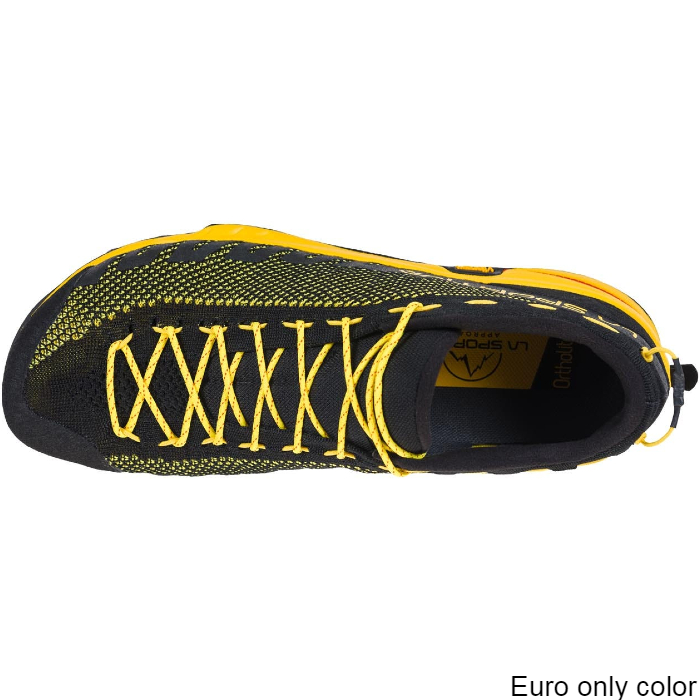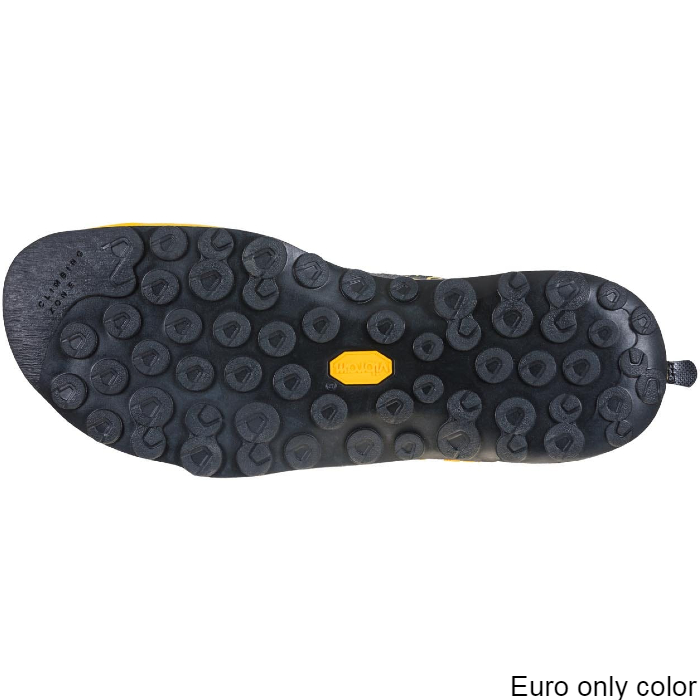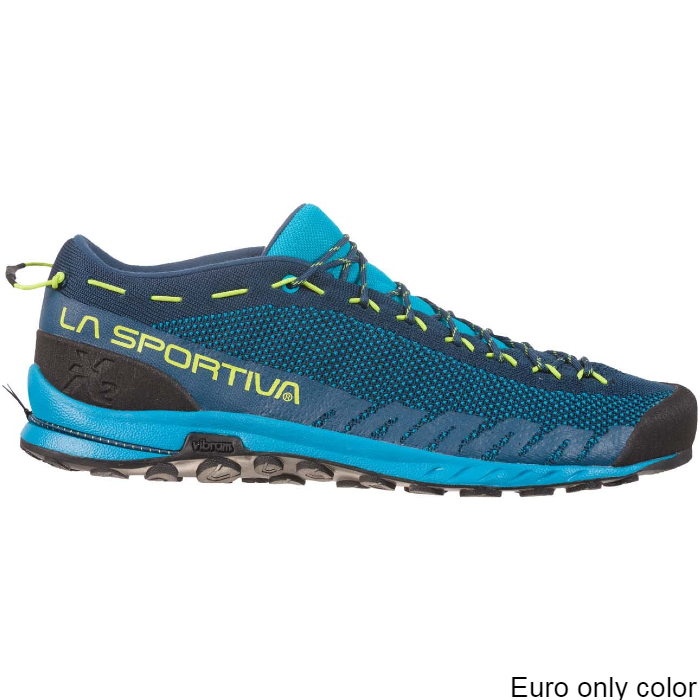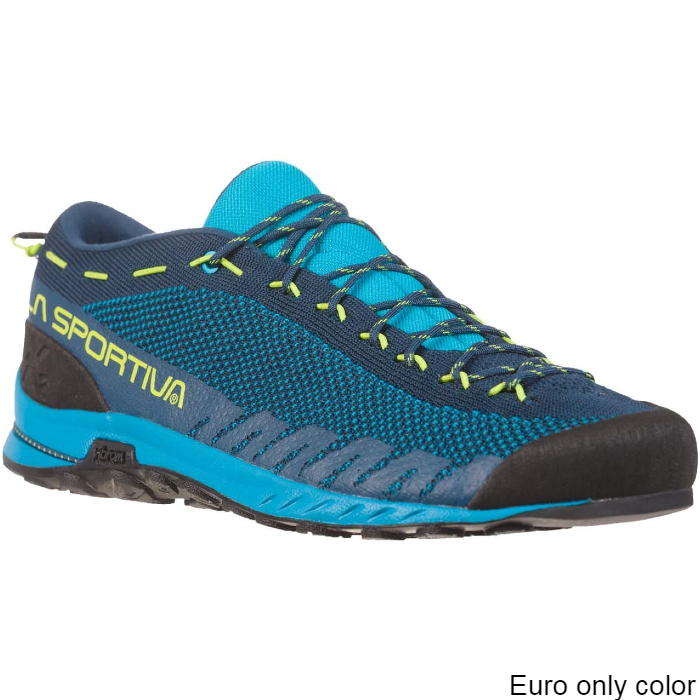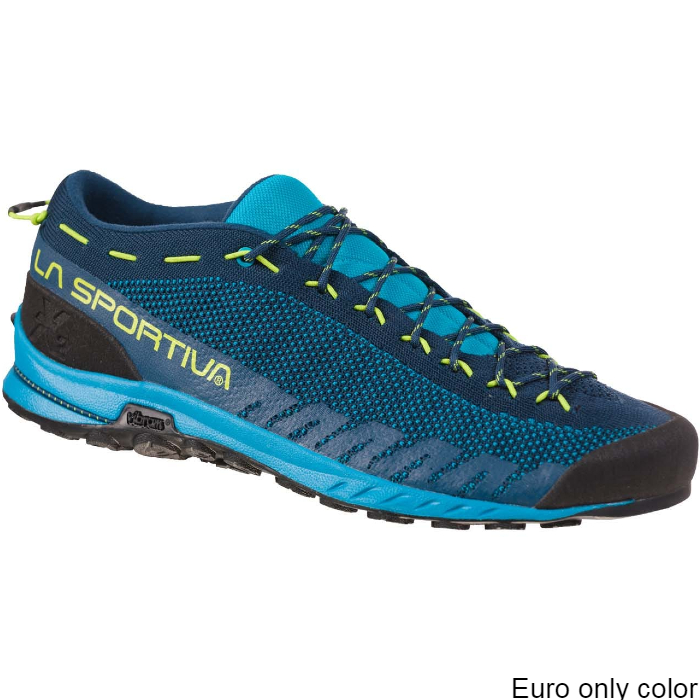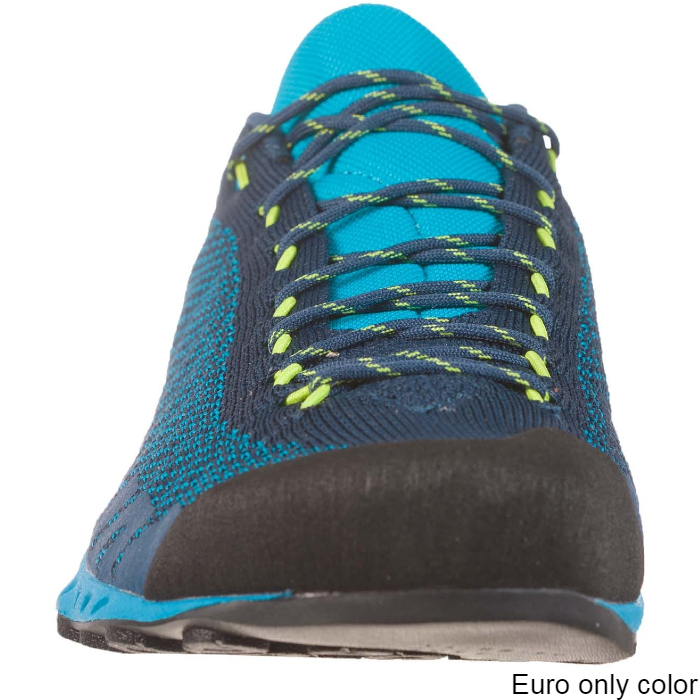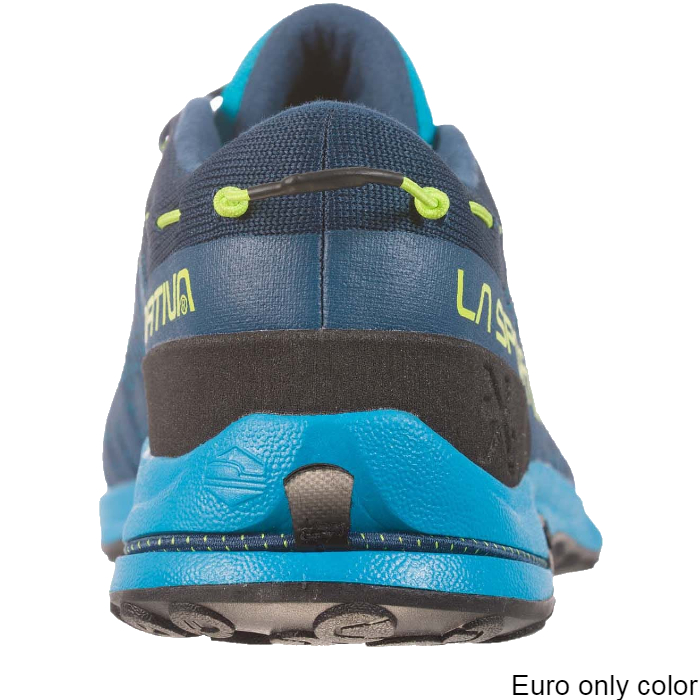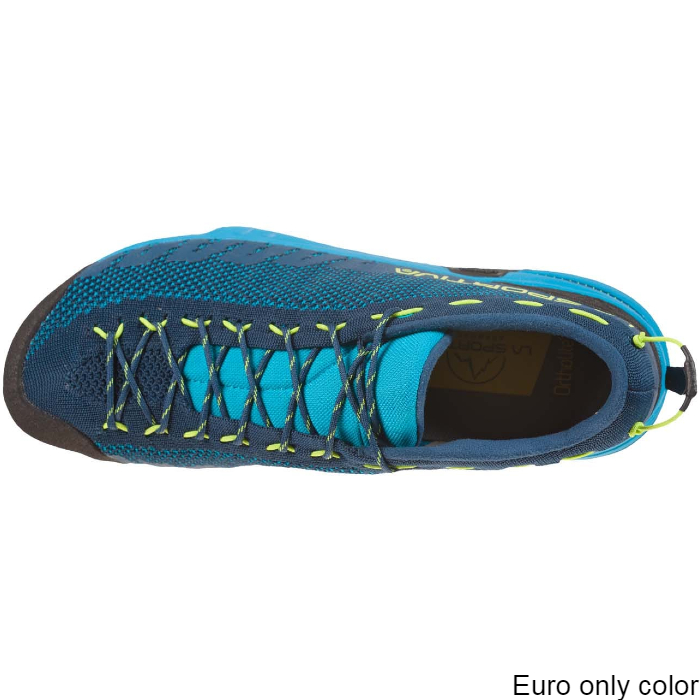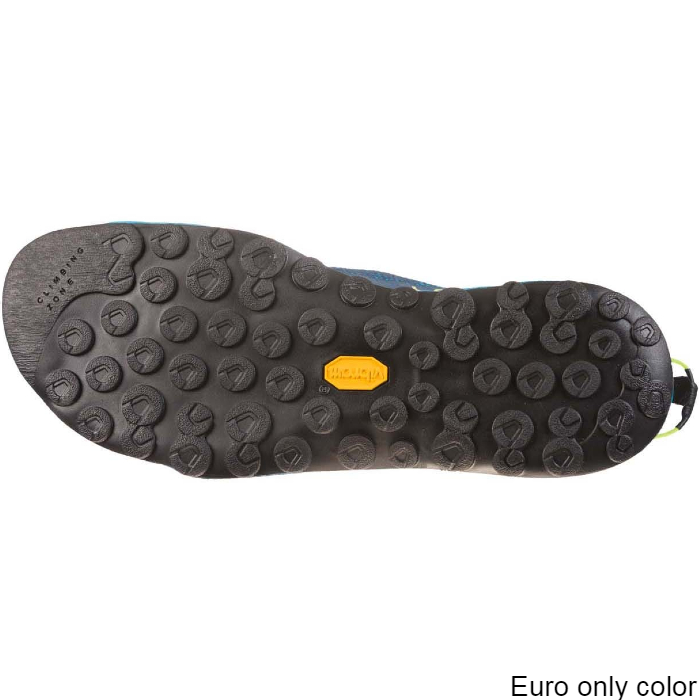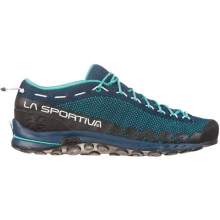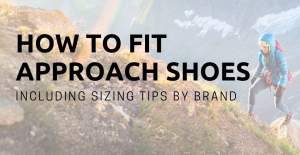TX2 Men
Description
Retail price
When you click a link below and then checkout online, no matter what you buy (climbing gear or not), we get a small commission that helps us keep this site up-to-date. Thanks!



| Weight | Half Pair - size unknown Full Pair - size unknown |
Style  StyleRunningA running inspired shoe, designed to excel on technical trails. These shoes may have less rubber lasting and a smaller climbing zone on the sole but tend to be on the lighter and less bulky side of the spectrum, similar to a classic technical trail runner. CasualGreat for flat ground, short approaches, and slabby scrambling. Casual approach shoes are great daily wear for folks that find themselves scrambling and hiking a lot in between trips to the crag and the grocery store. TechnicalA more rugged shoe with more lasting and typically a thicker sole. Made to handle the most technical terrain and talus fields. Technical shoes can also have more ankle coverage and waterproof coatings. |
Technical |
Volume  VolumeSize vs GenderVolume refers to the overall sizing of the shoe in relation to the size of the foot from top to bottom and side to side. Many brands make a Mens/Unisex shoe and some have both a Men’s and Women’s model. Brands are slowly updating their language away from gender to Low/High volume -- recognizing that any person may have a high or low volume foot. |
High (men/unisex) |
Closure  ClosureFlat LacesFlat laces are found most often on casual or running shoes, as their low bulk helps with aesthetic and having a lower profile. Cord LacesCord laces are found on the majority of approach shoes. Their rounded shape makes them more durable than flat laces and their woven structure makes them much stronger. Webbing & BucklesThough fairly uncommon, some approach shoes are made to be closed via a combination of threaded flat webbing and a tightening buckle. |
Cord laces |
Rise  RiseLow vs MidThe rise of an approach shoe mostly affects the support and coverage of the ankle but can also limit articulation and range of motion. Most approach shoes have a low rise. A mid rise should be chosen when scrambling through large loose scree or boulder fields is a regular need or when in wet or snowy environments where slippery surfaces can benefit from more ankle support. |
Low |
Features  FeaturesClimbing ZoneThe climbing zone is a quintessential part of an approach shoe; without it, we consider a shoe a hiker or trail runner. The climbing zone is a flat or flattened area of the sole directly beneath the toes on every approach shoe. This zone is specifically designed to not have lugs for grip and instead is intended for smearing and edging on rock during an approach to a technical climb. Some manufacturers add splits or shallow texture to this zone, but it is not lugged as in a traditional hiker. Foldable HeelA foldable heel is designed to flatten into the shoe so it may be slid on and off easily similar to a clog or a croc. This is becoming more common with newer models and is most likely to be seen in casual shoes than hiking or running. Low Toe LacingLow toe lacing is a feature where the closure of the approach shoe extends greatly towards the toes as compared to traditional hiking shoes. This will most usually be an extra 3-5 extra lacings across the shoe that are usually partially across the knuckles of the toes. The advantage of lacing extending this low is that it allows a greater tightening of the shoe around the toes when terrain requires technical footwork like slab climbing or crack jamming. StowableAn approach shoe with this feature either has a built-in elastic or webbing or an accessory strap or band that is designed to connect the shoes to each other when they aren’t worn. This allows them to be hung from a harness or bag on a multipitch climb. This is fairly uncommon and usually found on light-weight shoes. VeganSince there is no standard in the shoe industry for what exactly qualifies a shoe as ‘Vegan’, we only list this if the manufacturer has stated it in the product description. WaterproofRefers to an applied coating or material technology that either makes a shoe resistant or impervious to water. Not every manufacturer tests waterproofing in the same way so this can be difficult to compare. We list items as ‘Waterproof’ when the manufacturer states they have one or more of these technologies. |
Climbing Zone Low toe lacing Stowable |
| Sizing | EU: 38 - 47.5 (half sizes) |
| Materials & Construction | Upper: Zone knit polyester mesh
Midsole: Traverse lite injection MEMlex / C2™ ComboCord Footbed: 4mm Ortholite Approach Insole / Liner: Non-slip mesh Sole: Vibram® Mega-Grip™ Traverse-Lite Last: Traverse |
No reviews yet.
The La Sportiva TX2 is the nimblest approach shoe of the test; its sock like fit, flexible nature and sticky outsole urge you to almost run to the cliff. The polyester knit upper, soft injection molded midsole and sticky rubber outsole prioritize swiftness over protection to favor light loads and moderate trails.
I've found the La Sportiva TX2 to be a lightweight, yet surprisingly durable, approach shoe. The sticky sole climbs rock well, without being dangerous on slippery wet grass. They're not cheap, however I think it's a price well worth paying considering their low weight and high durability. The only negative for me is the C2 Combo cord, which is nothing more than a poorly executed gimmick. Thankfully it goes virtually unnoticed and would not put me off buying these excellent shoes.
A good approach shoe can turn a long slog to the cliff into an enjoyable walk in the woods. In the past, our lead tester guided for an entire summer in a blown-out pair of approach shoes, shouldering heavy packs and putting lots of miles over four months, leaving him hobbling for most of the fall. Don't fool around with your feet! Even these lightweight shoes have plenty of support, so even the most weight-conscious climbers have no excuse not to treat their feet nice. Call us short-sighted, but right now we can't imagine a better approach shoe than the TX2, and we're happy to award it the Editors' Choice.
The La Sportiva TX2 approach shoes are part of a Sportiva shoe line that includes the TX3 and TX4. The TX series combines the attributes of hiking, trail running and climbing shoes to create designs that are as versatile as possible while keeping the weight minimal. The TX2s are the lightest of the series, at 9.8 ounces, while the other two models provide increasing levels of support and durability, weighing 12.5 and 13 ounces, respectively. (A pair of Sportiva Miura climbing shoes weighs 8.43 ounces.) The TX2s are ideal for cragging or fast-and-light outings in warmer conditions—note the well-ventilated mesh body, which I will discuss later—while the other models are likely better suited for big walls or alpine missions where more time will be spent on snowy terrain or carrying heavier loads. I got my pair of TX2s in mid-November, so I ended up testing them in some sloppy winter conditions anyway, and I'm pleased so far.

